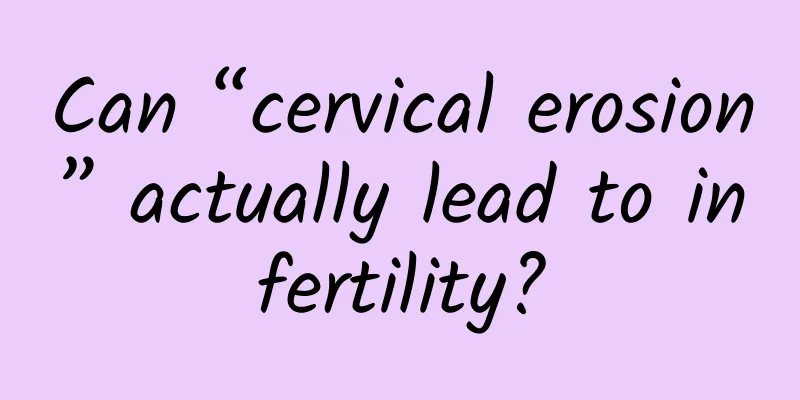Known as the "number one killer" of baby health! This age group is a high-risk group for infection

|
Many parents I start to worry when I hear my baby coughing Does the baby have pneumonia? Pneumonia is the most common serious illness in children It is also the number one killer of children under 5 years old There are many "culprits" (pathogens) that cause pneumonia. Among them, the most common and most lethal Pneumococcus Today, I will share with you the relevant content 01 What is Pneumococcus? Pneumococcus is widely distributed in nature and colonizes in the human nasopharynx. Even healthy people may be carriers of pneumococcus, and they can spread the infection to others by talking loudly or sneezing. Studies have shown that the proportion of healthy people carrying pneumococci is about 40% to 70%. In developing countries, the nasopharyngeal carriage rate of infants and young children can be as high as 85%. Generally speaking, they will behave themselves. However, when we are exposed to rain, fatigue, viral infection, etc., and our resistance is reduced, Streptococcus pneumoniae will attack various parts of our body, which can cause pneumonia, sinusitis, meningitis, thrombospondylolysis and other diseases, and even death. Image source: Foshan Center for Disease Control The immune system of infants and young children is not yet fully developed, especially for young babies. The maternal antibodies obtained from their mothers gradually disappear, and the antibodies produced by themselves are insufficient, so they are in a "vacuum period". Therefore, children between birth and 2 years old are a high-risk group for pneumococcal infection. 02 How to deal with pneumococcus? Vaccination with 13-valent pneumococcal vaccine is one of the most economical and effective means to prevent infants and young children from pneumococcal diseases! Image source: Foshan Center for Disease Control There are currently three types of 13-valent pneumococcal polysaccharide conjugate vaccines approved for marketing in my country: Image source: Foshan Center for Disease Control Babies of different ages need different doses of vaccination. Please see the following picture for details: Image source: Foshan Center for Disease Control Parents who have questions can also consult the vaccination doctor at the vaccination clinic and choose the appropriate vaccine based on the actual situation. Image source: Foshan Center for Disease Control 03 Frequently asked questions about 13-valent pneumococcal vaccine Question: Does different ages affect the effectiveness of vaccinations if the number of vaccinations is different? Answer: Different vaccination schedules are set for different age groups of the 13-valent pneumococcal polysaccharide conjugate vaccine. The main reason is that as age increases, the immune system gradually matures and the number of doses required to achieve a protective effect decreases accordingly, so the vaccination schedules for different age groups are different. The vaccination procedures are different for different age groups, but as long as the complete immunization program is completed, the immune effect is the same. It is recommended to get vaccinated as early as possible for early protection. Question: If my baby has had pneumonia, does he still need to be vaccinated? Answer: Yes. Even if the baby has had pneumonia caused by Streptococcus pneumococcus, after recovering from the illness, he or she will only be immune to the Streptococcus pneumococcus serotype that has infected him or her, but will not be immune to other serotypes. Therefore, it is still necessary for babies who have already had pneumonia to receive the 13-valent pneumococcal vaccine. In addition, you also need to know this: 1.13-valent pneumococcal vaccine is a non-immunisation program vaccine and needs to be administered voluntarily and at the citizens' own expense with their informed consent. 2.13-valent pneumococcal vaccine only protects against pneumococcal diseases caused by the 13 pneumococcal serotypes (1, 3, 4, 5, 6A, 6B, 7F, 9V, 14, 18C, 19A, 19F and 23F) contained in the vaccine, and cannot prevent diseases caused by other types of pneumococci and other pathogenic microorganisms. 3. Like other vaccines, vaccination with the 13-valent pneumococcal vaccine does not necessarily provide 100% protection. |
<<: Health Science: How to deal with diarrhea in summer?
>>: Health Science: Do you know how to use topical ointments effectively?
Recommend
What should pregnant women eat when they have internal heat?
Pregnant women have many physiological problems d...
Where to inject painless injection for normal delivery
The pain a mother experiences during childbirth i...
Can I drink brown sugar ginger water at night when I have my period?
Brown sugar and ginger water have many benefits f...
How to take care of your skin in autumn?
Everyone knows that autumn is a very dry season. ...
What causes vaginal pain during menstruation?
Menstruation is very important for every woman, a...
After ovulation, my stomach hurts.
Every girl will experience some discomfort during...
Can I still go to Korea due to the epidemic? When will the epidemic in Korea end?
The epidemic in South Korea is so serious that pe...
Do raw potatoes really remove stretch marks?
Stretch marks are not unfamiliar to many women. A...
The best time for pregnant women to take calcium tablets
Although it is now recommended that pregnant wome...
Amniotic fluid index standard and precautions at 30 weeks of pregnancy
We all know that it is very difficult for every p...
A woman has a hard lump under her right ribs
There are many types of cancer, the most common o...
Can lilies be placed in the bedroom? What is the meaning of lily?
Lily is also called Qiangqu, Fanjiu, Shandan, Dao...
What tests should be done when you are one month pregnant
For every pregnant woman, she must go for a prena...
Do pregnant women need to hold their urine during ultrasound?
Today we are going to discuss whether pregnant wo...
What is fallopian tube pain? Causes of fallopian tube pain
The fallopian tube is the channel for transportin...









